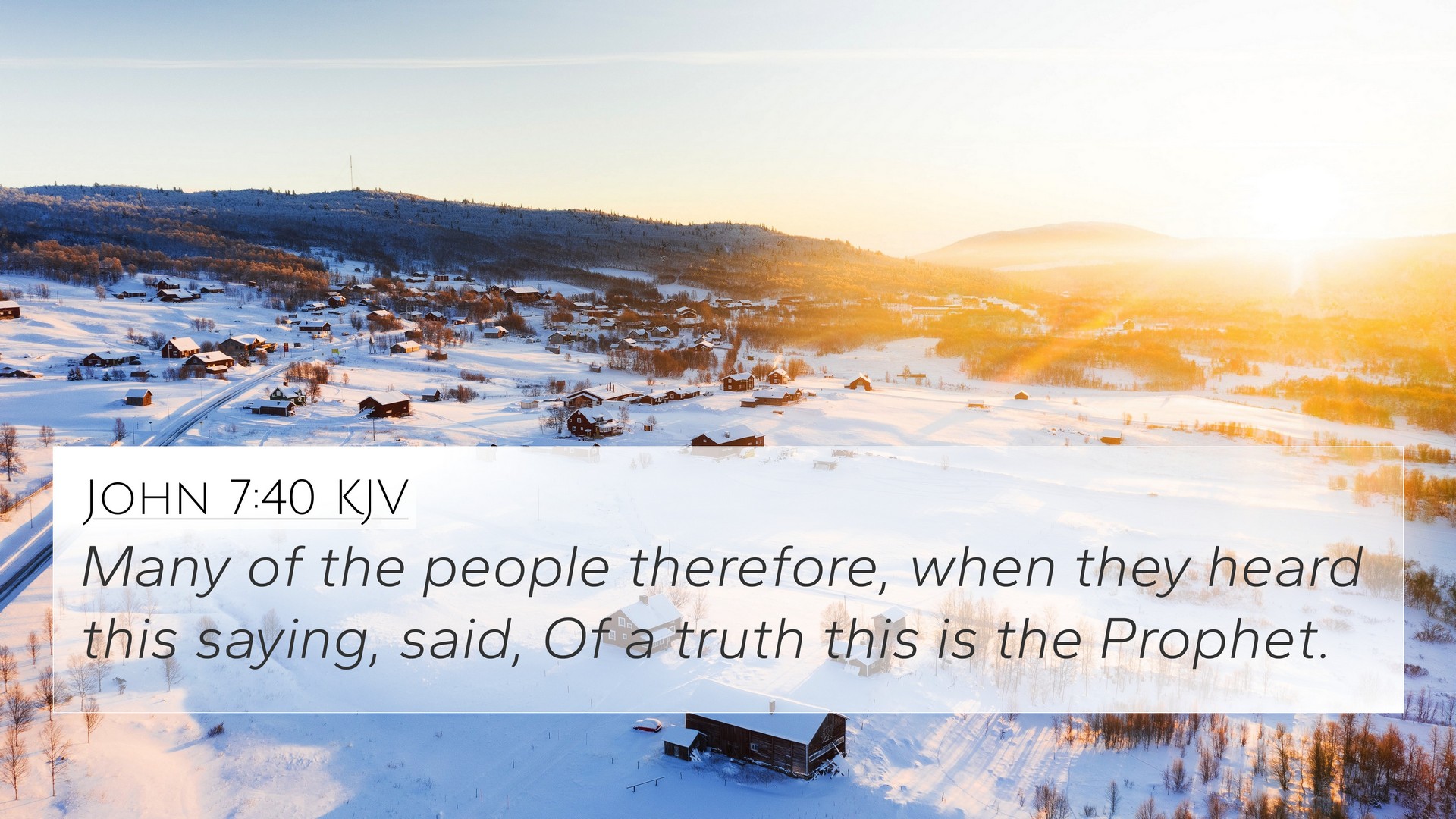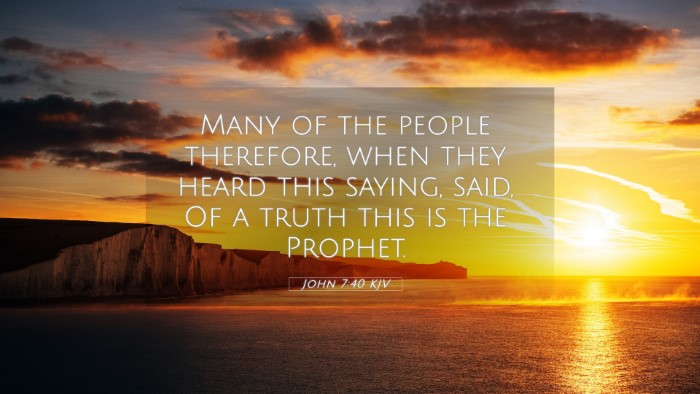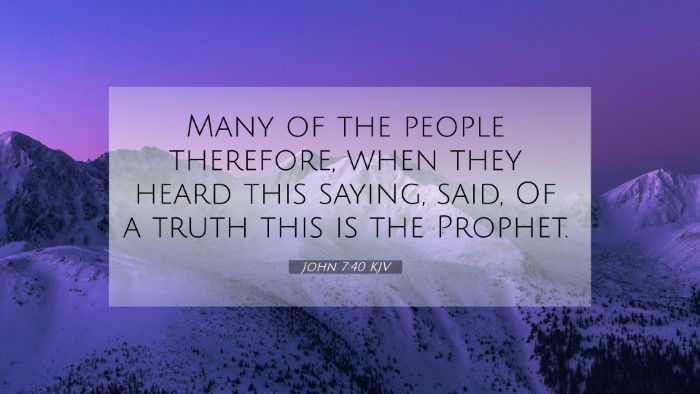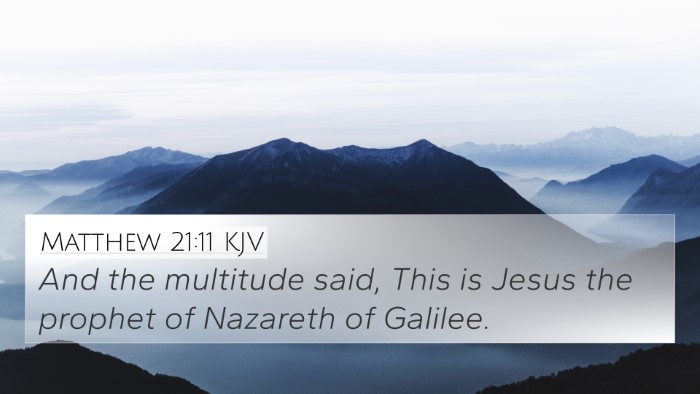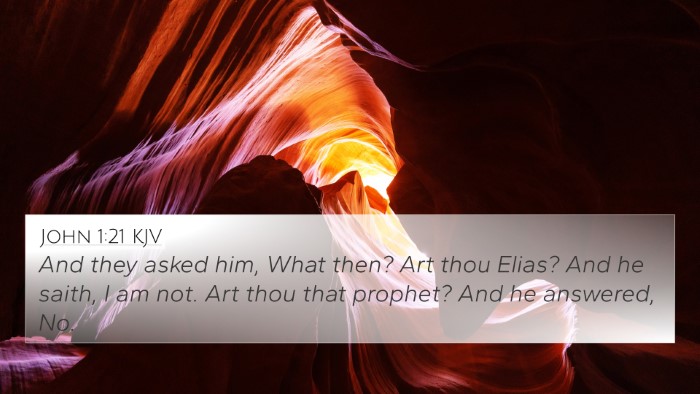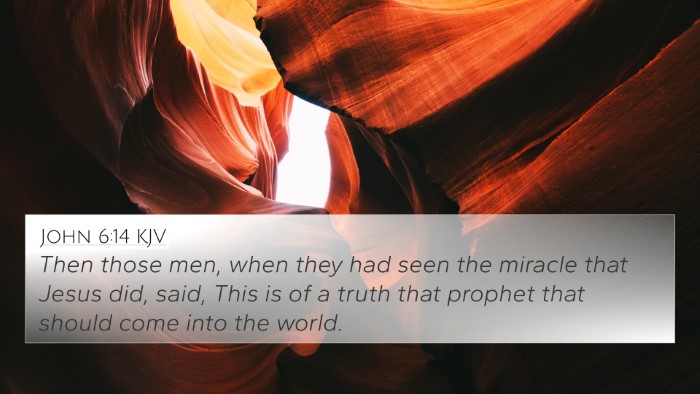Understanding John 7:40
In John 7:40, we find individuals reacting to the teaching of Jesus. The verse states: "Many of the people therefore, when they heard this saying, said, 'Of a truth this is the Prophet.'" This reflects the divided opinions about Jesus’ identity during his ministry.
Summary of Insights
The commentary from various scholars provides a rich understanding of this verse:
- Matthew Henry: He emphasizes that the people's response indicates a recognition of Jesus as a prophet, aligning Him with the expectation of a Messiah foretold in the Scriptures. Henry notes that this statement shows both admiration and a gradual revelation of Jesus’ true identity.
- Albert Barnes: Barnes discusses the implications of the term "the Prophet," linking it to Deuteronomy 18:15 where Moses speaks of a prophet like himself who would arise. The crowd's acknowledgment illustrates their search for divine guidance and fulfillment of Old Testament prophecies.
- Adam Clarke: Clarke expounds on the varying perceptions of Jesus by different groups. He posits that some believed in Him based on His miracles and teachings, while others remained skeptical, highlighting the tension surrounding His ministry and message.
Thematic Connections
This verse connects to several broader themes within the Bible, particularly regarding prophecy and acknowledgment of divine authority. Here are some relevant themes and verse connections:
- Recognition of Jesus as the Prophet (Deuteronomy 18:15-19)
- The role of prophecy in the life of Jesus (Luke 24:44)
- Responses to Jesus’ message (John 3:19-21)
- The diversity of opinions about Jesus (Matthew 16:13-14)
- The prophetic mission of Jesus (Mark 1:1-3)
- The significance of belief in Christ (John 20:31)
- The reactions of the people during Jesus’ ministry (John 7:12)
Cross-References to John 7:40
In studying this verse, we can draw connections with other scripture passages that provide deeper insights:
- Luke 7:16: The people acclaim Jesus as a great prophet after He raises the widow's son.
- John 6:14: After the feeding of the 5,000, the crowd acknowledges Him as the prophet who is to come into the world.
- Acts 3:22: Peter references Moses' prophecy about Jesus being the Prophet.
- John 1:21: The question posed to John the Baptist about whether he is the prophet signifies the expectation of prophetic figures.
- Matthew 21:11: The crowds declare Jesus as a prophet during His triumphal entry, reinforcing His prophetic identity.
- John 4:19: A Samaritan woman identifies Jesus immediately as a prophet due to His revelations of her life.
- Matthew 11:9: Jesus Himself poses the question regarding what the people went out to see, which resonates with the people's perception of Him as a prophet.
- Hebrews 1:1-2: References to God speaking through prophets in the past and finally through His Son align with the acknowledgment in John 7:40.
Analytical Insights
From these commentaries and cross-references, we can derive a coherent understanding of John 7:40. It reflects a pivotal moment in the unfolding narrative of Jesus’ identity. The varying public responses highlight a critical facet of faith; the acknowledgment of Jesus as a prophet is both a declaration of faith and an invitation to deeper understanding.
Tools for Study
For those wishing to delve deeper into this topic, consider these tools for Bible cross-referencing:
- Bible Concordance: Useful for finding similar words and themes across scripture.
- Bible Cross-Reference Guide: Helps in navigating connections between verses.
- Online Bible Study Tools: Many websites and apps facilitate cross-referencing and thematic studies.
- Commentaries: Scholarly writings provide insight and contextuality to verses.
- Interlinear Bibles: Show original language text alongside translations to explore nuances.
Conclusion
In summary, John 7:40 serves as a touchstone for understanding how Jesus was perceived during His earthly ministry. It invokes themes of prophecy, identity, and the varied reactions of people to divine revelation. By studying this verse through the lens of additional scripture and scholarly commentary, believers can gain a richer appreciation of the connections between God’s word and its implications for faith today.
